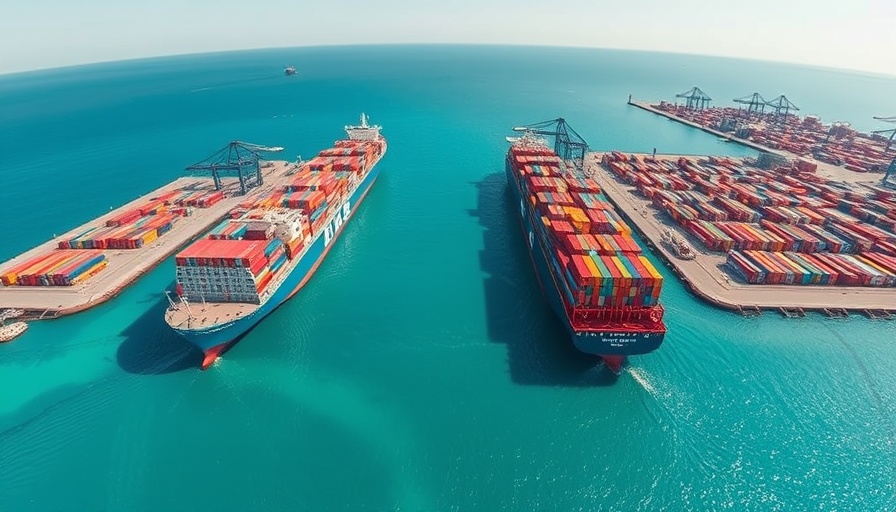
Expeditors' Strong Q2 Performance: A Detailed Overview
The recent quarterly report from Expeditors International of Washington has turned heads in the logistics industry. The global freight forwarder announced notable profit and revenue figures for the second quarter, surpassing Wall Street estimates. This remarkable achievement can be attributed to a 7% increase in both airfreight tonnage and ocean container volumes compared to last year's figures. As businesses looked to import goods ahead of impending U.S. tariffs, the surge in demand significantly bolstered the company's performance.
The Impact of Tariffs on Freight Volumes
In the lead-up to the new U.S. tariffs, many importers rushed to stock up on inventory, which led to increased demand for freight services. Daniel Wall, CEO of Expeditors, noted that this surge was especially prevalent in the airfreight sector, where customers aimed to transport high-value goods, particularly technology products. The urgency to meet trade deadlines has prompted companies to leverage freight services aggressively, resulting in a 10.5% boost in revenue from the customs brokerage segment—pushing revenues to $1.02 billion, compared to $927 million from the previous year.
Complex Trade Policies Yield Higher Fees
In an environment characterized by increasingly complicated trade policies, Expeditors has been able to charge higher processing fees. As U.S. importers rely more on customs brokers to navigate these complexities, the service costs have risen, contributing further to the company's robust revenue. This strategic leverage of tariffs highlights an opportunistic approach from Expeditors, utilizing market dynamics to enhance bottom-line performance.
Financial Performance: Numbers That Speak Volumes
Expeditors reported a quarterly revenue of $2.65 billion, exceeding analyst estimates of $2.44 billion. The profitability metrics were equally impressive, with earnings per share (EPS) hitting $1.34, surpassing the anticipated $1.24. These results reflect a strong operational performance amidst an uncertain market climate, marking the firm's ability to adapt and excel.
Future Insights: Navigating Market Volatility
Despite the impressive current results, Wall cautioned that freight market conditions are expected to remain volatile for the remainder of the year. As global supply chains continue adapting to political and economic shifts, companies must anticipate and prepare for ongoing fluctuations in demand. This anticipation for potential disruptions requires businesses to remain agile and responsive.
Conclusion: Essential Takeaways for the Industry
As global trade policies evolve and freight volumes shift, the report underscores essential insights for industry stakeholders. Companies looking to navigate these turbulent waters should be prepared to engage with customs brokers and utilize freight forwarding services effectively. Expeditors' success serves as a case study in leveraging market opportunities, hinting at the value of strategic foresight in logistics.
For any company involved in international trade or logistics, understanding these dynamics is crucial. Staying informed about fluctuations in freight volumes and shifting policies can make or break your operational effectiveness in this complicated landscape.
 Add Row
Add Row  Add
Add 




Write A Comment